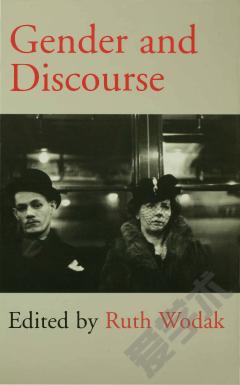Language and Sexism
The issue of sexist language has been hotly debated within feminist circles since the 1960s. Previous books have tended to regard sexism in language as easy to identify and have suggested solutions to overcome and counter sexism. Sara Mills takes a fresh and more critical look at sexism in language, and argues that even in feminist circles it has become a problematic concept. Drawing on conversational and textual data collected over the last ten years, and with reference to recent research carried out in a range of different academic disciplines, Mills suggests that there are two forms of sexism - overt and indirect. Overt sexism is clear and unambiguous, while indirect sexism is based on pragmatics and the meaning and interpretation of utterances. Indirect sexism is extremely common and we therefore need new ways to challenge and analyse its usage in language.
{{comment.content}}








 京公网安备 11010802027623号
京公网安备 11010802027623号